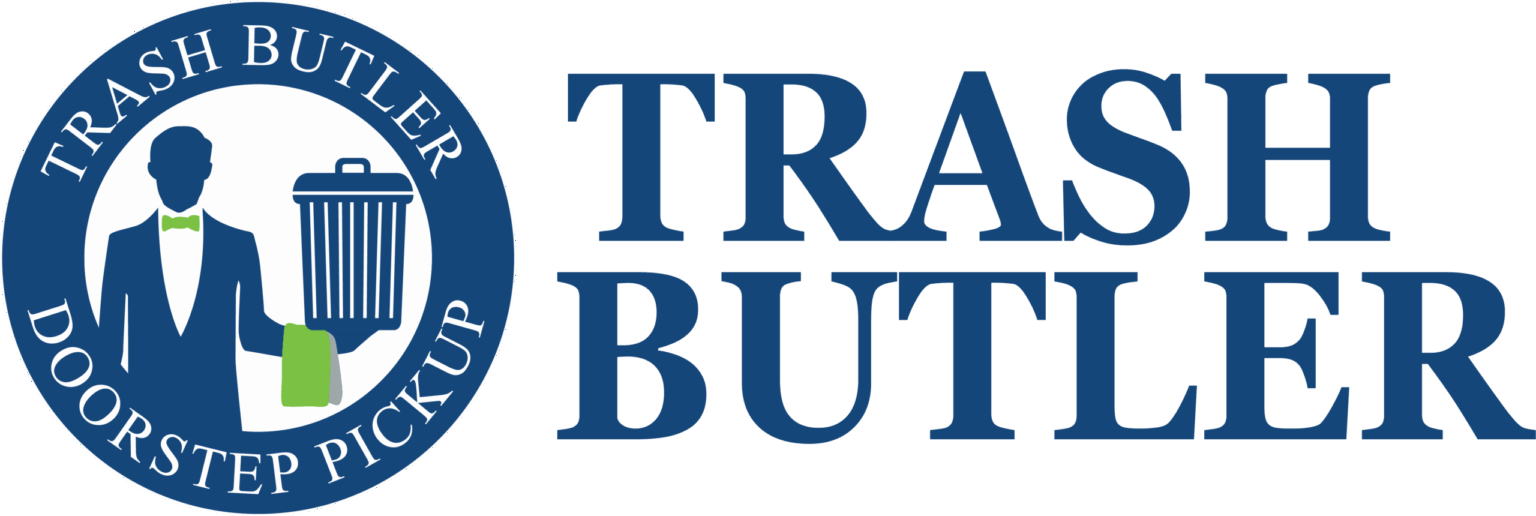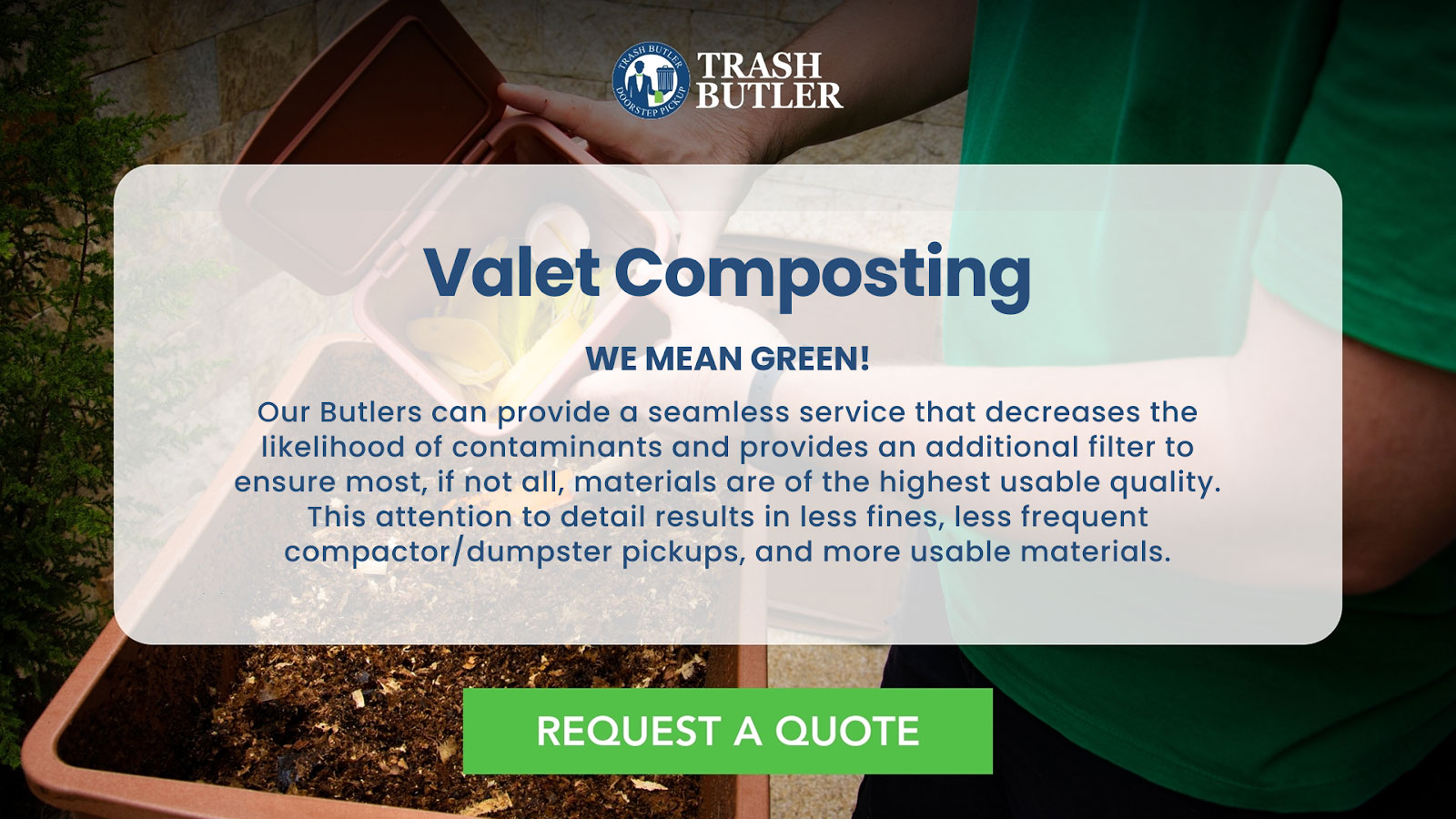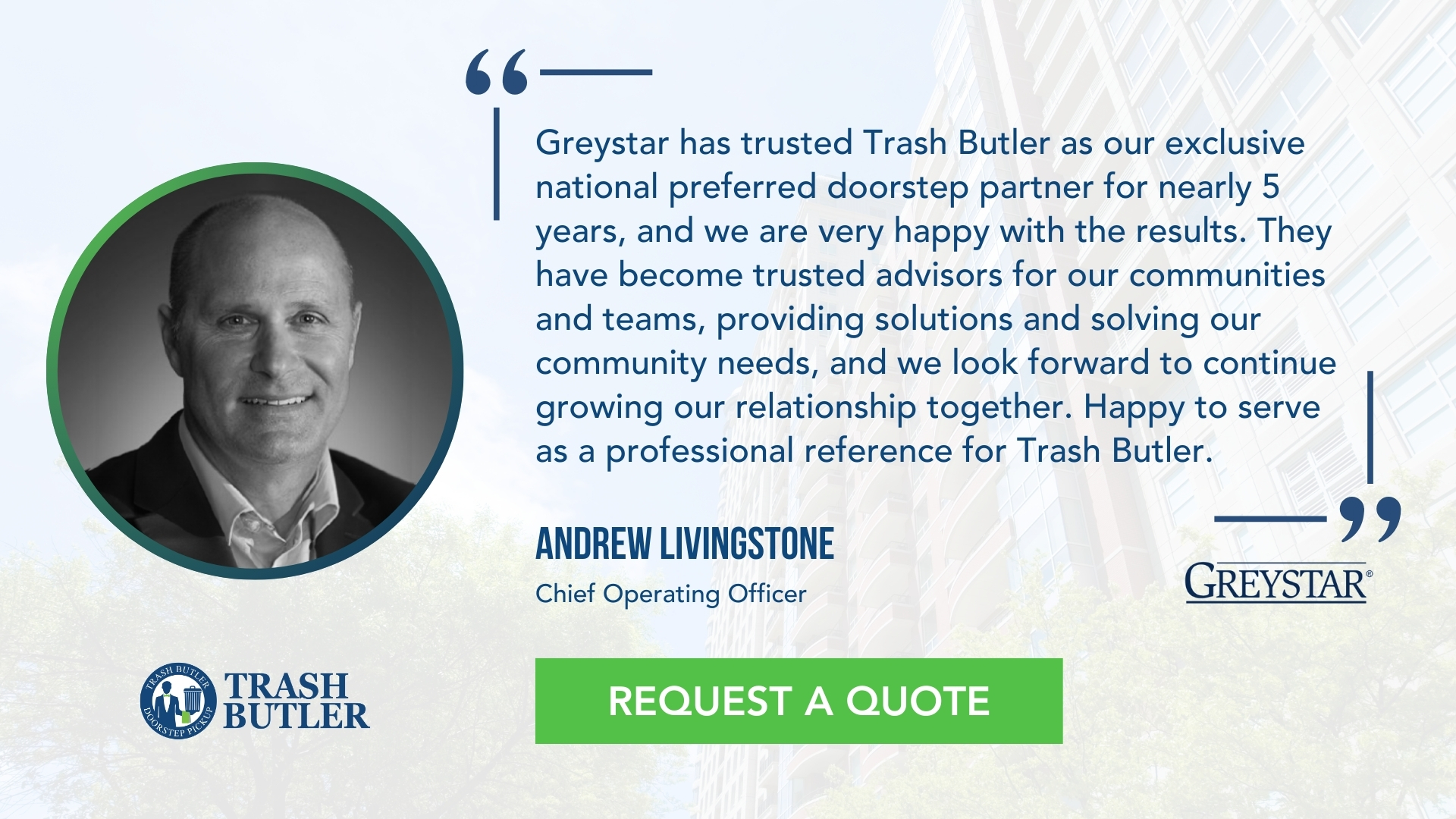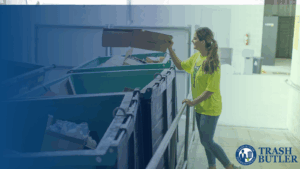Key Takeaways:
- Landlords and tenants share responsibility for waste disposal: Landlords provide bins and ensure compliance with local regulations, while tenants follow sorting rules, use bins properly, and minimize waste.
- Clear communication is crucial: Both parties should understand their roles through a well-defined lease agreement and open communication. Landlords should keep tenants informed about collection schedules and disposal guidelines.
- Compliance with local regulations is essential: Landlords must be aware of local waste sorting requirements, banned items, and collection schedules to avoid fines and promote environmental responsibility.
When renting property, the responsibilities of both tenants and landlords are often clearly outlined. Among these obligations, garbage disposal might seem straightforward, but it can lead to disputes if not properly addressed. Landlords hold a crucial role in ensuring that their rental properties maintain cleanliness and sanitation standards, but what are their responsibilities regarding garbage management?
In this article, we’ll explore landlords’ specific duties and obligations regarding garbage management in rental properties. From understanding legal requirements to implementing practical solutions, we’ll provide comprehensive guidance to help landlords fulfill their responsibilities and maintain a clean, hygienic living environment for their tenants.
Tenant Vs. Landlord: Who’s Responsible For Trash Removal?
Waste removal is a collaborative effort between tenants and landlords in residential tenancies. Understanding each party’s obligations is essential to ensure a clean and sanitary environment. This analysis focuses on the specific responsibilities incumbent upon landlords regarding waste management.
Providing the Essentials for Proper Disposal
- Adequate Bin Capacity: Landlords are obligated to furnish the rental property with a sufficient number of bins with appropriate sizing. This ensures tenants have the necessary capacity to accommodate their household waste without creating overflowing receptacles that could attract pests or pose health hazards.
- Dissemination of Waste Disposal Information: Landlords are responsible for educating tenants on the local waste collection procedures. This critical information should encompass:
- Sorting Protocols: Clear guidelines on properly sorting recyclables, compostables, and general trash are paramount. This empowers tenants to dispose of waste responsibly and avoids potential fines levied by local waste management authorities for improper sorting.
- Bin Placement Instructions: Detailed instructions regarding bin placement for collection are crucial. This includes specifying designated locations and collection times to ensure a smooth process and prevent missed pickups or unsightly clutter around the property.
Maintaining Functionality of Waste Disposal Systems
- Bin Upkeep and Replacement: While tenants are responsible for keeping the bins clean, the landlord typically has the onus of replacing worn-out or damaged bins. This ensures the bins remain functional and prevents overflowing trash due to broken lids, faulty mechanisms, or cracks that compromise sanitation.
Optional Services
- Bulk Trash Removal: Some landlords may extend their services to include removing bulk trash items such as furniture or appliances. While this can be a valuable service for tenants, it’s important to understand that it’s not a mandatory obligation. The lease agreement should explicitly clarify such arrangements to avoid any confusion.
It’s important to acknowledge that while landlords provide the infrastructure and some level of maintenance for waste disposal, tenants also share the responsibility:
- Proper Bin Usage: Tenants must ensure they use the bins appropriately, which includes:
- Utilizing the designated bin for each type of waste stream.
- Refraining from placing hazardous materials or excessive amounts of waste that won’t fit properly.
- Accurate Waste Sorting: Adhering to the landlord’s sorting guidelines is crucial to avoid contamination of recyclables and ensure efficient waste processing.
- Timely Bin Placement: Tenants are responsible for following the local collection schedule and placing the bins in the designated location for timely pickup.
Legal Obligations For Landlord Garbage Management
While the specific legal obligations may vary slightly depending on your location, here’s a breakdown of the core legal responsibilities landlords typically have regarding garbage management:
Providing Adequate Waste Disposal Means
- Bins and Receptacles: Most regions have laws mandating that landlords provide sufficient bins with appropriate sizes for the property and number of tenants. This ensures tenants have the legal means to dispose of waste hygienically and comply with local regulations.
- Compliance with Local Regulations: Landlords must ensure their waste disposal methods comply with local authority guidelines. This may involve adhering to specific bin types, designated waste collection services, or prescribed sorting procedures. Non-compliance can result in fines or penalties for the landlord.
Informing Tenants of Disposal Procedures
- Clear Communication: Landlords are legally responsible for communicating local waste disposal procedures to their tenants. This information should include:
- Sorting requirements: Landlords must provide clear instructions on how to sort waste into designated categories, such as recyclables, compostables, and general trash. This ensures proper waste processing and avoids fines for incorrect sorting.
- Collection schedules and bin placement: Landlords should inform tenants about collection days and times and designated bin placement areas. This promotes a smooth waste collection process and prevents missed pickups or sanitation issues.
Maintaining Functionality of the System
- Functional Bins: In most jurisdictions, landlords are legally responsible for ensuring the bins they provide are functional and in good condition. This includes replacing worn-out or damaged bins that could hinder proper waste disposal or create safety hazards (e.g., broken lids causing injuries).
Important Considerations:
- Environmental Laws: Landlords also have a general legal obligation to comply with environmental laws regarding waste disposal. This may involve avoiding disposal of hazardous materials in regular trash or adhering to specific regulations for bulky waste items.
- Lease Agreement: While these are the general legal obligations, reviewing your specific lease agreement is crucial. Some landlords may take on additional responsibilities like bulk trash removal, while others may outline specific tenant obligations regarding waste disposal practices.
Tenant’s Role In Responsible Waste Management
As a tenant, you are vital in ensuring responsible waste disposal in your rental property. Understanding your responsibilities and working collaboratively with your landlord leads to a cleaner, healthier living space and benefits the environment. Here’s a breakdown of your key responsibilities and how they connect to the landlord’s role:
- Following Sorting Guidelines: Familiarize yourself with the waste disposal procedures outlined in your lease agreement and any additional informational materials provided by your landlord. This typically includes sorting trash, recyclables, and compost (if applicable) into designated bins.
- Proper Use of Bins: Utilize the designated bins for their intended purposes. Avoid overfilling bins and ensure all waste is contained to prevent spills, odors, and pest attraction.
- Adhering to Collection Schedules: Put out your trash and recyclables according to the designated collection schedule provided by the landlord or waste collection service. Following the schedule prevents overflowing bins and potential neighborhood sanitation issues.
- Responsible Disposal of Bulky Items: Communicate with your landlord about properly disposing of bulky items like furniture or appliances. Depending on the agreement, you might be responsible for scheduling pickups or adhering to designated drop-off procedures.
- Hazardous Waste Management: Never dispose of hazardous materials (batteries, paint, etc.) in regular trash. Consult your landlord or local waste management authority for proper disposal guidelines for these items.
Understanding Landlord Responsibilities
While you have essential duties, it’s important to understand your landlord’s role in waste management:
- Providing Adequate Bins: Your landlord should equip the property with clearly labeled bins for different waste types and in appropriate sizes to handle your waste generation.
- Waste Removal Services: The landlord is typically responsible for contracting a reliable waste collection service with a schedule that aligns with the property’s needs.
- Clear Communication: The landlord should clearly outline waste disposal expectations in the lease agreement and provide information about local regulations and disposal procedures.
Additional Considerations:
- Minimizing Waste: As a tenant, you can contribute significantly by practicing waste reduction strategies like buying in bulk with less packaging, composting food scraps (if applicable), and repairing items instead of discarding them readily.
- Responsible Pet Waste Disposal: If you have pets, ensure proper disposal of pet waste in designated pet waste bins or following local regulations.
Clarifying Responsibilities In Your Lease Agreement
A well-defined lease agreement is essential for establishing clear expectations regarding waste disposal in your rental property. This document outlines your obligations as a tenant and your landlord’s responsibilities in maintaining a clean and environmentally responsible environment. Here’s a professional guide to help you navigate the relevant clauses and ensure a smooth waste management experience:
Identifying the Relevant Clauses
- Waste Disposal Section: Look for dedicated sections titled “Waste Disposal,” “Garbage Removal,” or “Trash Management.” These sections should clearly outline the property’s general waste management protocols.
- Maintenance and Repair Clauses: Review sections regarding maintenance and repair. These might indirectly touch on waste disposal, particularly regarding tenant responsibilities for maintaining bins or reporting overflowing bins that require landlord intervention.
Key Points for Professional Review
- Bin Provision: Does the lease agreement explicitly state that the landlord is responsible for providing labeled bins for trash, recyclables (if applicable), and potentially compost? Are there details regarding bin size, number, and labeling protocols?
- Waste Collection Services: Who is responsible for contracting and paying for waste collection services? Is the cost of waste collection factored into your rent or billed separately?
- Sorting and Disposal Guidelines: Does the lease agreement clearly outline the waste types in each designated bin? Are there specific instructions for hazardous materials or bulky items (furniture, appliances)?
- Tenant Responsibilities: The lease should detail your responsibilities as a tenant. These might include adhering to sorting guidelines, proper bin usage, following collection schedules, and disposing of bulky items according to designated procedures.
- Consequences for Non-Compliance: Are there outlined consequences for repeated violations of waste disposal guidelines, such as overflowing bins or improper sorting?
Proactive Measures for Clarity
- Meticulous Review: During lease signing, meticulously review the waste disposal clauses. Don’t hesitate to request clarification from your landlord on any ambiguous points.
- Request for Clarification: If you find the clauses unclear or lack specific details, politely request your landlord to add specific language regarding bin size, collection frequency, or proper disposal procedures for specific items.
Additional Professional Tips
- Maintain a Copy: Keep a signed copy of your lease agreement readily available for future reference.
- Open Communication: Maintain open communication with your landlord. If you have questions about proper disposal methods, encounter issues with overflowing bins, or lack recycling options, don’t hesitate to seek clarification.
Compliance With Local Waste Regulations
Effective waste management in rental properties requires a collaborative effort between landlords and tenants. Landlords are critical in ensuring compliance with local waste regulations and fostering a clean and environmentally responsible living environment for their tenants. Here’s a breakdown of key aspects:
Research and Proactive Awareness
Landlords have a professional obligation to research and maintain awareness of the local waste management regulations governing their rental properties. These regulations typically encompass:
- Waste Sorting Requirements: Local authorities often mandate specific sorting procedures for various waste streams, such as trash, recyclables, compost (if applicable), and yard waste. Landlords must be familiar with these requirements and implement them within their properties.
- Prohibited Items: Certain items may be banned from regular trash disposal and require specialized disposal procedures. Landlords should be informed and communicate these banned items to their tenants.
- Collection Schedules and Services: Local regulations often dictate collection schedules for different waste types. Landlords must ensure their contracted waste collection service aligns with these schedules to avoid missed pickups and potential sanitation issues.
Benefits of Regulatory Compliance
- Mitigating Fines and Penalties: Non-compliance with local waste regulations can lead to significant fines and penalties for landlords. Staying informed and ensuring proper disposal practices minimizes this risk.
- Promoting Environmental Responsibility: By adhering to local regulations, landlords contribute to a more sustainable waste management system, benefiting the environment and promoting a healthier community.
- Enhancing Tenant Satisfaction: Providing a clean and environmentally responsible living space fosters tenant satisfaction, potentially leading to increased retention rates and positive word-of-mouth recommendations.
Resources for Informed Decision-Making
Several resources can assist landlords in staying current with local waste regulations:
- Local Government Websites: Most websites offer dedicated sections outlining waste management regulations, collection schedules, and disposal guidelines.
- Waste Collection Services: Landlords can contact their contracted waste collection service for information and clarification on local regulations.
- Tenant Inquiries: Tenants might inquire about local regulations. Landlords should be prepared to answer or direct these inquiries to the appropriate resources.
Landlords can create a well-managed rental environment that benefits everyone involved by proactively seeking knowledge and ensuring compliance with local waste regulations.
Open Communication: Key To Smooth Landlord-Tenant Garbage Relations
An essential aspect of managing landlord garbage responsibilities effectively is maintaining open lines of communication with tenants. To ensure the property’s waste management protocols are followed and optimized, landlords and property managers must engage transparently and regularly with tenants.
Building Awareness Through Regular Updates
Sending out regular updates via email newsletters or community bulletins can help keep tenants informed of any changes in garbage collection schedules or recycling guidelines. These communications should be clear and concise, avoiding technical jargon that might confuse tenants. For landlords in multi-family apartment communities, leveraging a management portal can also effectively broadcast messages and receive feedback on the waste management process.
Encouraging Feedback and Suggestions
Creating an environment where tenants feel comfortable providing feedback about the garbage disposal system can improve services and increase tenant satisfaction. This feedback might include suggestions for additional recycling bins or modifications to pickup times that could benefit the broader community. Such interactions foster a collaborative atmosphere and help pinpoint potential issues before they escalate, ensuring smooth day-to-day operations.
Hosting Informative Sessions
Organizing quarterly or bi-annual meetings to discuss garbage disposal practices can be beneficial. During these sessions, tenants can voice their concerns, and landlords or property managers can update and educate tenants on proper waste segregation and the environmental benefits of following best practices. This proactive approach reinforces the rules and highlights the landlord’s commitment to sustainability and community wellness.
Resolving Disputes Regarding Landlord Garbage Responsibilities
When disputes arise regarding landlord garbage responsibilities, it’s crucial to address them promptly and efficiently to ensure that the living environment remains clean, healthy, and compliant with local waste management ordinances. Here are some steps that can be taken to resolve such disputes:
- Review the Lease Agreement: The first step in any dispute resolution should be to revisit the lease agreement. This document typically outlines the landlord and tenants’ responsibilities regarding garbage disposal. Clarification of these stipulations can often resolve misunderstandings immediately.
- Communication: Open lines of communication are essential. Landlords should approach the situation with a mindset geared towards finding a solution, discussing the issue directly with tenants, and listening to their concerns. It’s beneficial to keep all communications documented.
- Mediation: If direct communication does not resolve the issue, mediation can be a viable next step. Involving a neutral third party can help mediate the discussions and lead to an amicable, agreeable solution.
- Implement Clear Policies and Signs: To prevent future disputes; landlords can implement clear garbage disposal policies and ensure these are communicated effectively to all tenants. Placing signs that remind tenants of their responsibilities and the location of disposal areas can also be helpful.
- Professional Garbage Collection Services: Hiring services like Trash Butler™ can significantly reduce conflicts related to garbage disposal. With a professional service, landlords can ensure that garbage is disposed of regularly and efficiently, adhering to local regulations and maintaining the property’s cleanliness.
- Local Housing Authority Consultation: If disputes escalate or persist, consulting with local housing authorities can provide guidance and help enforce local health and sanitation codes.
Final Thoughts
Understanding landlord garbage responsibilities is crucial for both landlords and tenants. A well-defined system promotes a clean, sustainable, and professional living environment. Landlords should provide clear waste disposal guidelines in the lease, ensure adequate bins and collection services, and stay informed about local regulations.
Tenants play their part by following sorting rules, utilizing bins properly, and minimizing waste. Open communication and collaboration between both parties are key to a successful waste management system in any rental property.
By partnering with specialized services like Trash Butler™, landlords can effortlessly address these duties with professional assistance.
Our innovative doorstep valet trash service, designed for multi-family apartment communities, transforms the typical garbage disposal process into a seamless and efficient routine. Our Butlers are more than just service providers—they embody our commitment to sustainability and exceptional service, making a significant difference in residents’ daily lives and easing the burden on property managers.
Additional Read:
- Navigating Valet Trash Charges In Your Lease Agreement
- Trash Removal Responsibilities: What Landlords Need To Know
- The Benefits Of Valet Trash Services For Apartment Complexes
Frequently Asked Questions
How many bins should my landlord provide?
Typically, the number of bins a landlord provides depends on local regulations and the size of the rental property. Talk with your landlord to ensure there are sufficient bins to meet the needs of all residents.
What type of bins should my landlord provide?
Landlords are generally expected to provide bins suitable for the type of waste and recycling services available in the area. These bins should be sturdy, have a lid, and be appropriately sized for the property’s waste generation.
Is my landlord responsible for replacing broken or damaged bins?
In most cases, landlords are responsible for providing and maintaining waste bins for their rental properties. This responsibility typically includes replacing broken or damaged bins. However, specific regulations and responsibilities may vary depending on local laws and the terms outlined in the lease agreement.
What if my landlord doesn’t arrange for garbage removal?
Landlords are typically required to arrange regular garbage removal services per local sanitation guidelines. If your landlord fails to do this, you may need to report the issue to local authorities or a municipal health department.
What happens if the lease agreement contradicts local regulations?
Local regulations usually take precedence over lease agreements. If your lease includes terms contradicting local waste management laws, the local laws will typically govern. It’s advisable to discuss any discrepancies with your landlord.
Should the lease agreement specify who is responsible for garbage removal?
Yes, it is beneficial for the lease agreement to specify who is responsible for garbage removal. This can prevent any potential disputes or confusion during the tenancy.
Does the landlord have to remove hazardous waste from the body?
Landlords are responsible for ensuring the proper disposal of any hazardous waste generated from common areas of the property. However, tenants are generally responsible for disposing of hazardous waste in their living spaces.
Can my landlord charge me extra for garbage removal if I generate a lot of trash?
This depends on the terms of your lease agreement and local regulations. Some landlords may charge additional fees for excessive waste, provided this is clearly outlined in the lease.
Can I request the landlord to provide recycling or composting bins, even if not initially offered?
You can always request additional waste management services like recycling or composting bins. While landlords are not always obligated to provide these services, many are accommodating and may add them to support sustainability goals.
I’m moving into a new rental. What questions should I ask the landlord about garbage removal?
When moving into a new rental, ask about the frequency of garbage pickup, what kind of waste separation is required, and who is responsible for taking out the trash. Also, inquire about specific rules regarding waste disposal and recycling in the building or community.







